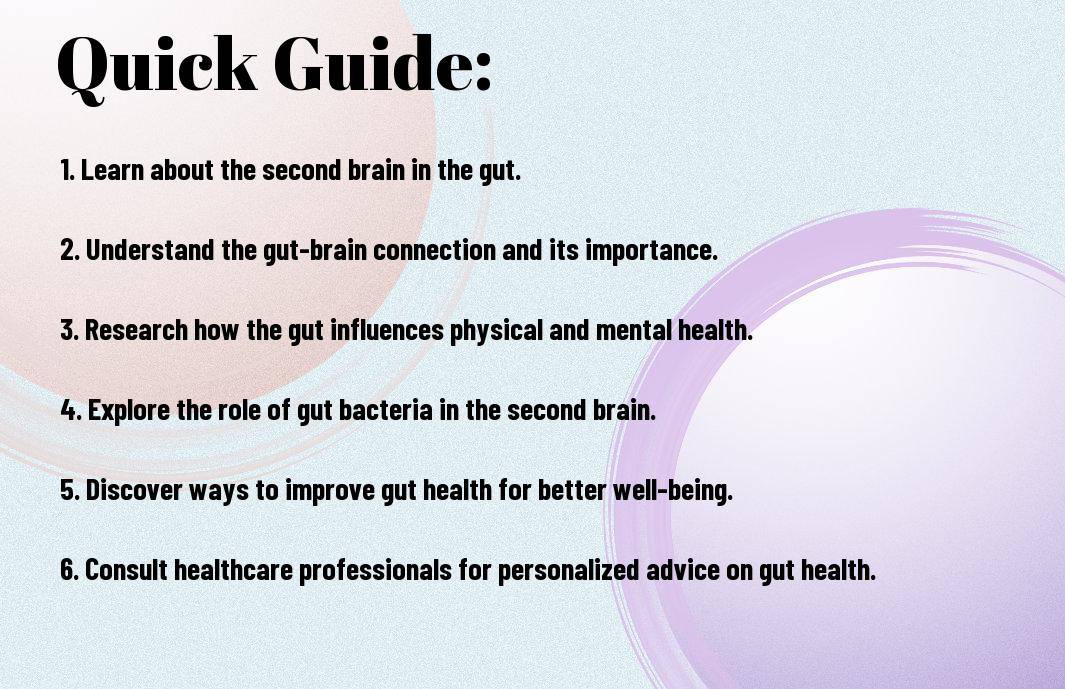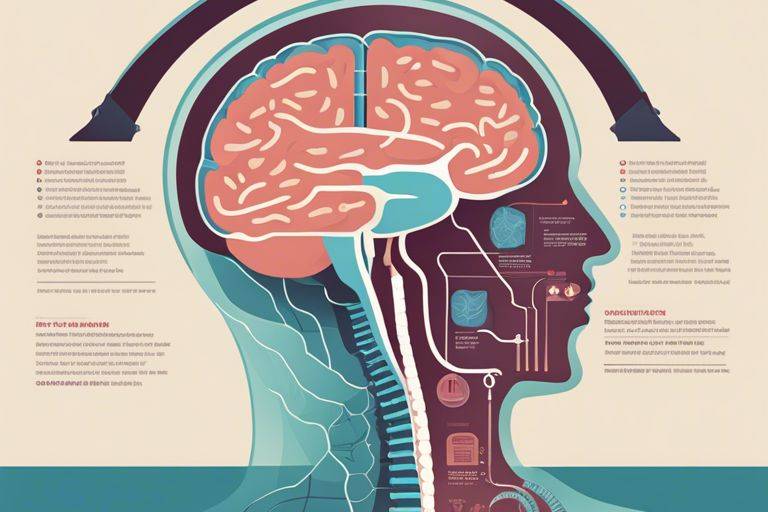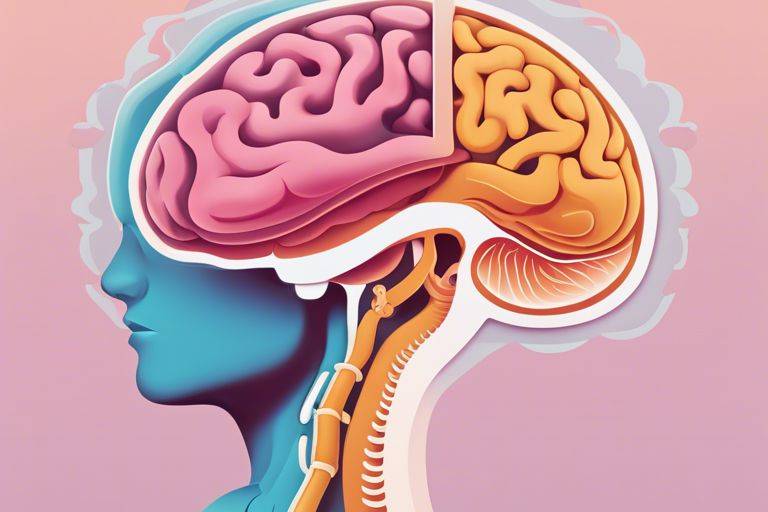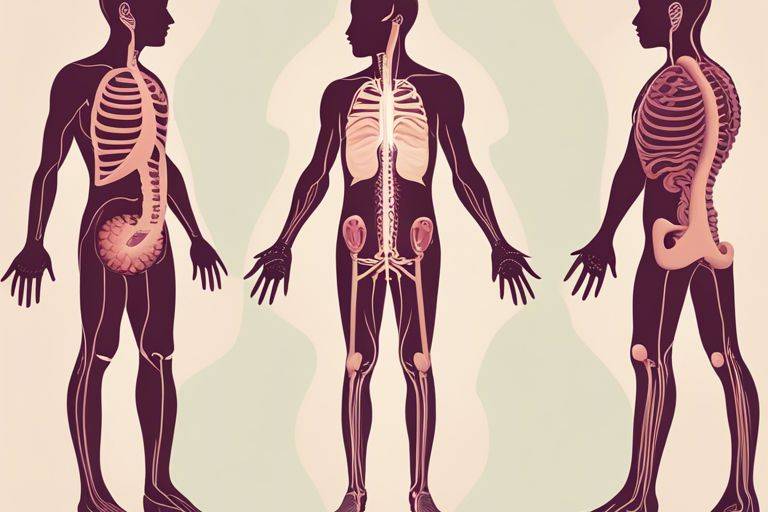The Second Brain Concept! This beginner’s guide examines into the fascinating concept of the second brain, shedding light on its importance and impact on our overall well-being. Often referred to as the enteric nervous system (ENS), the second brain plays a crucial role in regulating digestion, mood, and even influencing our immune system. Understanding how this intricate system works can help improve gut health, mental well-being, and overall quality of life.
Key Takeaways:
- Second Brain Concept: The second brain refers to the Enteric Nervous System (ENS) that is a complex network of neurons located in the gut, often referred to as our “second brain.”
- Connection to Brain: The ENS communicates bidirectionally with the central nervous system, highlighting the strong connection between the gut and the brain.
- Gut-Brain Axis: The communication pathway between the gut and the brain is known as the gut-brain axis and plays a crucial role in regulating emotions, mood, and even cognitive functions.
- Mental Health: A healthy gut is vital for overall well-being, and imbalances in the gut microbiota can lead to mental health issues such as anxiety, depression, and stress.
- Diet and Gut Health: Eating a diverse range of foods, high in fiber and nutrients, can positively impact gut health and contribute to a healthy second brain.
- Stress Management: Chronic stress can adversely affect the gut-brain axis, emphasizing the importance of stress management techniques such as meditation, yoga, and deep breathing exercises.
- Seek Professional Guidance: Consult a healthcare provider or nutritionist for personalized advice on how to improve gut health and support your second brain for overall well-being.

The Biological Basics
One 🧠The Beginners Guide to Building a Second Brain
Defining the Second Brain: Enteric Nervous System
On a journey to understand the concept of the second brain, we encounter the Enteric Nervous System (ENS), often referred to as the “second brain” due to its extensive network of neurons that regulate the gastrointestinal system. The ENS comprises over 100 million nerve cells that line the gut, continuously communicating with the brain in your head. This intricate system is responsible for managing digestion, absorbing nutrients, and even influencing your mood, earning its place as a crucial player in your overall well-being.
Interaction Between the Central and Enteric Nervous Systems
Systems within our body are intricately connected, and the interaction between the central nervous system (CNS) and the enteric nervous system (ENS) is no exception. The CNS, composed of the brain and spinal cord, communicates with the ENS through a two-way highway known as the gut-brain axis. This axis enables constant communication that impacts not only your digestive processes but also your emotional state and cognitive function. Understanding this connection can shed light on how our gut health affects our mental well-being and vice versa, highlighting the importance of nurturing both systems for overall health.
To research deeper into the interaction between the central and enteric nervous systems, it’s necessary to recognize that the gut-brain axis is bi-directional, allowing signals to travel in both directions. Factors like stress, diet, and medications can influence this communication, affecting not only your gut health but also your mental health. Creating a harmonious relationship between these two systems can lead to improved digestion, better emotional regulation, and enhanced cognitive function, emphasizing the significance of taking a holistic approach to health.
Types of Gut-Brain Interactions
Many intricate connections exist between the gut and the brain, forming a complex network known as the gut-brain axis. This bidirectional communication system involves various mechanisms that influence our physical and mental well-being. Understanding the types of interactions that occur between these two vital systems is crucial for comprehending the profound impact they have on our overall health.
- Neurotransmitters and Hormones
- The Microbiota-Gut-Brain Axis
| Neurotransmitters and Hormones | The Microbiota-Gut-Brain Axis |
| The gut produces several neurotransmitters and hormones that can signal the brain and affect mood, cognition, and behavior. | The microbiota-gut-brain axis involves the bidirectional communication between the gut microbiota and the brain, influencing various aspects of health. |
| While serotonin is commonly associated with mood regulation, a significant amount of this neurotransmitter is actually produced in the gut. | Gut-brain communication occurs through the production of neurotransmitters, such as serotonin and dopamine, by gut bacteria. |
| Dysregulation of gut neurotransmitters and hormones can contribute to conditions like anxiety, depression, and irritable bowel syndrome (IBS). | Imbalances in the gut microbiota can impact brain function and behavior, potentially leading to mental health disorders. |
| This intricate interplay highlights the crucial role of the gut in influencing brain health and function. | Importantly, maintaining a healthy gut microbiota is important for overall well-being and mental health. |
Neurotransmitters and Hormones
While the brain is traditionally viewed as the primary regulator of neurotransmitters and hormones, the gut plays a significant role in producing and releasing these chemical messengers. The gut houses a complex network of neurons that communicate with the brain through the release of neurotransmitters such as serotonin, dopamine, and gamma-aminobutyric acid (GABA). These molecules not only influence gastrointestinal function but also play a crucial role in modulating mood, stress responses, and cognitive processes.
The Microbiota-Gut-Brain Axis
Gut-brain communication is facilitated by the microbiota-gut-brain axis, a dynamic system that involves interactions between the gut microbiota, the gut epithelium, and the central nervous system. The gut microbiota, comprised of trillions of microorganisms, produces a vast array of compounds that can influence brain function and behavior. This complex interplay demonstrates the remarkable impact that gut health can have on mental well-being, emphasizing the importance of maintaining a diverse and balanced gut microbiota.
Recognizing the Signs of an Unhealthy Gut Brain
Now, as we probe into the concept of the second brain and its impact on our overall well-being, it’s crucial to recognize the signs of an unhealthy gut brain. To build a better understanding of how our gut health affects our cognitive function and mental clarity, consider exploring resources like A Beginner’s Guide to Obsidian and Building a Second Brain.
Common Symptoms and Complaints
Brain fog, digestive issues, mood swings, and chronic fatigue are common symptoms that may indicate an unhealthy gut brain. Individuals may also experience anxiety, depression, and difficulty concentrating as a result of gut dysbiosis or imbalance in the gut microbiome. These signs often manifest as a result of poor dietary choices, high stress levels, or lack of physical activity, impacting both gut health and cognitive function.
Long-term Risks of Ignoring Gut Health
Brain Ignoring gut health concerns can lead to long-term risks that extend beyond digestive discomfort. Chronic inflammation, compromised immune function, and an increased risk of developing neurological disorders such as Alzheimer’s disease or Parkinson’s are all associated with untreated gut dysbiosis. It’s crucial to address gut health issues promptly to prevent these serious long-term consequences.

Factors Influencing Gut Brain Health
Not all factors influencing gut brain health are within our control, but understanding the key elements can help maintain a healthy second brain. Here are some factors:
- Nutritional Inputs
- Lifestyle Choices
- Stress Levels
- Sleep Quality
- Physical Activity
- Microbiome Composition
Knowing the impact of these factors can empower individuals to make informed choices about their gut brain health. For further reading, check out Building a Second Brain: The Definitive Introductory Guide.
Nutritional Inputs
There’s a strong connection between the food we eat and our gut brain health. The quality and diversity of our diet play a crucial role in the functioning of our second brain. Nutrient-rich foods like fruits, vegetables, whole grains, and lean proteins support a healthy gut microbiome, which in turn influences our cognitive function and mental well-being.
Lifestyle Choices
Brain health is significantly impacted by lifestyle choices. With proper stress management, regular exercise, and consistent sleep patterns, we can positively influence our gut brain health. Prioritizing activities that reduce stress and promote relaxation can have profound effects on our overall well-being. Healthy lifestyle choices can contribute to a balanced gut brain axis, leading to improved mental clarity and emotional resilience.

Step-by-Step Guide to Nurture Your Second Brain
Unlike the primary brain in your head, the second brain refers to the intricate network of neurons lining your gut. This vital connection plays a pivotal role in your overall well-being and mental health. To optimize the functionality of your second brain, it’s vital to follow a structured approach. Let’s probe into a step-by-step guide to nurture your second brain.
| Evaluating Your Gut Health | Tips to Enhance Your Second Brain |
Evaluating Your Gut Health
Your gut health significantly impacts the condition of your second brain. Assessing your gut health involves observing your digestion, bowel movements, and any recurring discomfort. Consider consulting a healthcare professional for a thorough evaluation to identify any underlying issues affecting your second brain’s health.
Tips to Enhance Your Second Brain
With a focus on nurturing your second brain, incorporating key practices can yield significant benefits. Prioritize a diet abundant in fiber to support a healthy gut microbiome, fostering a conducive environment for your second brain. Regular exercise can also enhance gut motility and promote optimal functioning of your second brain. Stay hydrated, reduce stress levels, and ensure adequate sleep to further nurture this vital connection. Assume that implementing these practices consistently can positively impact your second brain’s health.
Diagnosis: Evaluating your gut health is crucial in understanding the state of your second brain. Issues such as Irritable Bowel Syndrome (IBS), leaky gut syndrome, and dysbiosis can significantly impact the functioning of your second brain. By identifying and addressing these concerns, you can improve your overall well-being and mental health.
Pros and Cons of Focusing on the Second Brain
After exploring the concept of the second brain, it is vital to understand the various pros and cons associated with focusing on this aspect of our body. By delving into the advantages and disadvantages, individuals can make informed decisions about how to best maintain a healthy second brain.
| Pros | Cons |
| Improved digestion | Potential for overreliance on gut instincts |
| Enhanced mood and mental health | Risk of gut-brain axis dysfunction |
| Boosted immune system | Difficulty in isolating gut-related issues |
| Regulated inflammation levels | Complexity of gut microbiome management |
Benefits of a Healthy Gut Brain
An optimal gut-brain connection can lead to several benefits for overall well-being. A healthy gut contributes to improved digestion, enabling efficient nutrient absorption and reducing digestive discomfort. Furthermore, a balanced gut microbiome can enhance mood and mental health by producing vital neurotransmitters, such as serotonin and dopamine.
Moreover, a strong gut-brain axis can boost the immune system’s function, protecting the body from harmful pathogens and illnesses. Regulating inflammation levels through a healthy gut can also aid in preventing chronic diseases and promoting overall wellness.
Challenges and Considerations
Considerations should be made when focusing on the second brain as challenges can arise. While a healthy gut is beneficial, there is a risk of overreliance on gut instincts that may not always align with logical reasoning. Additionally, the potential for gut-brain axis dysfunction could lead to mental health issues and cognitive impairments.
When addressing gut health, it is important to understand the complexities involved in managing the gut microbiome. Isolating gut-related problems can be challenging, as symptoms may overlap with other health conditions. It is crucial to approach gut health holistically and seek professional guidance when needed.
Absorption: To leverage the benefits of focusing on the second brain, individuals must prioritize maintaining a healthy gut-brain connection. While challenges may arise, the advantages of a well-functioning second brain, such as improved digestion and mood regulation, outweigh the potential cons when approached mindfully and with expert advice.
Conclusion
With this in mind, exploring the concept of the second brain provides valuable insights into the intricate connection between our gut and brain. Understanding how the gut microbiome influences our mental and emotional well-being can lead to improved overall health and quality of life.
By recognizing the significance of the gut-brain axis and making mindful choices to support a healthy gut, individuals can take proactive steps towards enhancing their cognitive functions and emotional resilience. Embracing the wisdom of the second brain concept empowers individuals to prioritize gut health as a foundational element of holistic well-being.
FAQ
Q: What is the second brain concept?
A: The second brain concept refers to the complex network of neurons found in the human digestive system, known as the enteric nervous system (ENS).
Q: How does the second brain communicate with the primary brain?
A: The second brain communicates with the primary brain through the vagus nerve, sending signals back and forth that can influence emotions, mood, and even decision-making.
Q: What role does the second brain play in our overall health?
A: The second brain plays a crucial role in regulating digestion, immune function, and even mental health. It can impact everything from our digestion to our mood and cognitive function.
Q: How can I support the health of my second brain?
A: To support the health of your second brain, focus on maintaining a balanced diet rich in fiber, probiotics, and prebiotics. Managing stress levels, getting regular exercise, and staying hydrated are also important.
Q: Can problems in the second brain lead to digestive issues?
A: Yes, problems in the second brain can contribute to digestive issues such as irritable bowel syndrome (IBS), bloating, and constipation. Maintaining a healthy second brain is crucial for overall digestive health.
Q: Are there any specific foods that can benefit the second brain?
A: Foods rich in probiotics, such as yogurt, kefir, and kimchi, as well as prebiotics like bananas, onions, and garlic, can support the health of the second brain. Fiber-rich foods also play a key role in maintaining a healthy gut.
Q: What are some signs of an unhealthy second brain?
A: Signs of an unhealthy second brain may include chronic digestive issues, mood swings, fatigue, and weakened immune function. It’s important to listen to your body and seek medical attention if you experience persistent symptoms.



